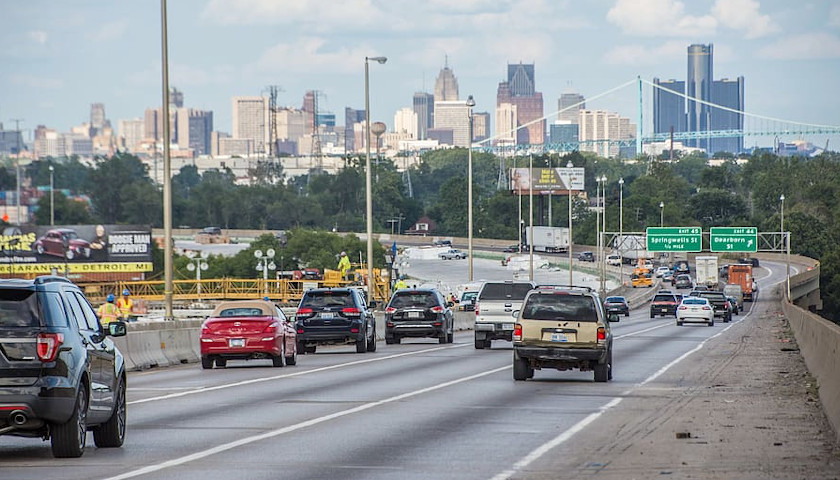by Scott McClallen
The state of Michigan Thursday announced a plan to explore the viability of developing a 40-mile corridor for connected and autonomous vehicles between Downtown Detroit and Ann Arbor.
The state selected Cavnue, a subsidiary of Sidewalk Infrastructure Partners (SIP) that partners with Alphabet, Google’s parent company, to develop the project.
“The action we’re taking today is good for our families, our businesses, and our economy as a whole. Here in Michigan, the state that put the world on wheels, we are taking the initial steps to build the infrastructure to help us test and deploy the cars of the future,” Gov. Gretchen Whitmer said in a statement.
“As we rebuild our roads to ensure every Michigander can drive to work and drop their kids at school safely, we will also continue working to build smart infrastructure to help prepare us for the roads of tomorrow. In Michigan, where the health of our workers and our economy are directly tied to the health of our auto industry, we will continue this innovative work to secure our state’s position as the automotive capital of the world.”
Cavnue will work with various government agencies throughout an expected 24-month-long Phase One.
Construction would be determined after Phase One, with goals to connect Detroit and Ann Arbor to destinations along Interstate 94 in Wayne and Washtenaw County in a corridor allowing a combination of connected and autonomous vehicles, traditional transit vehicles, shared mobility, and freight and personal vehicles.
The project aims to link the University of Michigan, Detroit Metropolitan Airport, and Michigan Central Station, according to a press release.
“As a company focused on the future of infrastructure, we are thrilled to launch Cavnue to build the future of roads, and partner with Michigan and the communities along the corridor on a first-of-its-kind CAV corridor,” SIP co-founder and co-CEO Jonathan Winer said in a statement.
Initial project partners include Ford Motor Company, the University of Michigan, Transportation Research Institute, and the American Center for Mobility.
“This project, and the decision by Cavnue and Sidewalk Infrastructure Partners to invest here, continues to reinforce that the future of mobility will be designed and built in Detroit and Southeast Michigan,” Detroit Mayor Mike Duggan said in a statement.
Another goal is to reduce the number of fatal automobile crashes in Michigan, which have numbered more than 10,000 since 2008, and many of which are attributed to human error.
“My vision for Michigan Central is to create an open mobility innovation district that solves tomorrow’s transportation challenges and improves mobility access for everyone,” Ford Motor Company Executive Chairman Bill Ford said in a statement.
“Building out a connected corridor cements Michigan as a leader in creating a more connected, autonomous and electrified future. We thank the state for recognizing the community and economic benefits and the importance of creating smart infrastructure across southeast Michigan.”
One glaring unanswered question remains: state officials haven’t responded to inquiries about the project’s cost.
Michigan Budget Director Chris Kolb has projected a $3 billion budget shortfall for fiscal year 2021, which will be better clarified after an August 24 revenue estimating conference.
– – –
Scott McClallen is a staff writer covering Michigan and Minnesota for The Center Square. A graduate of Hillsdale College, his work has appeared on Forbes.com and FEE.org. Previously, he worked as a financial analyst at Pepsi.





